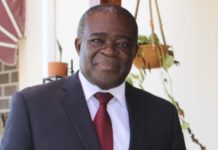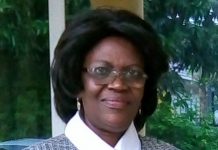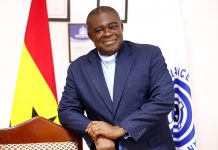|
Getting your Trinity Audio player ready...
|
Ghana relies largely on donor funding in the fight against HIV & AIDS
One of the groups to be negatively impacted by the proposed anti-LGBTQI law dubbed “The Promotion of Proper Human Sexual Rights and Ghanaian Family Values Bill, 2021″ is men who have sex with men in the country.
Experts say if the bill – in its current form which outlaws funding for such groups and provision of services to them – is passed into law, it will drive the practitioners underground which will result in the spread of human immunodeficiency virus (HIV) and acquired immunodeficiency syndrome (AIDS).
Ghana relies largely on donor funding in the fight against HIV & AIDS, and any law that bans donors from funding the activities of groups that provide health and life support to MSM will impact negatively on the fight against HIV.
For the experts, the bill (in its current form) will erode Ghana’s fight against HIV & AIDS since a significant number of people are engaged in the act.
Therefore, advocates are of the view that even if the bill is to be passed into law, portions that outlaw funding and service providers to MSM should be removed.
Studies from various countries where there are laws against gays, bisexuals and others show that HIV and AIDS among MSM are very high.
There are biological, behavioural, legal and social and cultural factors that put men who have sex with men 18.1% times more at risk of HIV compared with the general population.
One of the key reasons for high vulnerability to HIV among this group is that unprotected anal sex carries a higher risk of transmission than vaginal sex.
This is because the walls of the anus are thin and more easily torn, creating an entry point for HIV into the bloodstream.
The seriousness of the situation is found in a report sighted by The Finder titled “Ghana Men’s Study II (GMS II)” dated 2017, which looked at men who have sex with men (MSM) in Ghana.
According to the report authored by Ghana AIDS Commission (GAC), an estimated 54,756 men who have sex with men exist in Ghana as far back as 2017.
0.72% of adult male population aged 18 years and above.
This represents 0.72% of adult male population aged 18 years and above in Ghana using the population in 2017.
18.1% prevalence rate
The GMS ll found an aggregate HIV prevalence of 18.1% among MSM in Ghana, which represents a high prevalence rate compared to the national prevalence rate of 1.6%.
That, in real terms, represents about 9,911 men living with HIV in the MSM community.
93.4% are single or never married
According to the report, 93.4% of MSM in the study reported being single or never married, while HIV prevalence was 37.4% among MSM with four sexual partners in the past six months preceding the survey.
21.6% prevalence in MSM who had ever had sex with a female partner
It revealed that MSM who had ever had sex with a female partner had prevalence of 21.6%, while prevalence of HIV among MSM with one or no female sexual partners was 18.1%.
30.2% prevalence among receptive anal sex
For MSM with no or regular partner, HIV prevalence was 24.7% compared to MSM who engaged in receptive anal sex who had HIV prevalence of 30.2%
MSM with two or more receptive partners had HIV prevalence of 34.2%.
28.1% prevalence among transgender
HIV prevalence was 28.1% among MSM who identified as transgender.
91.5% MSM are 34 years and below
It turns out that a high number of 91.5% of all MSM are 34 years and below.
61.5% are between 18-24 years
The report revealed that about 61.5% of MSM populations in the study were aged between18 and 24.
30.6% between 25-34 years
Similarly, some 30.6% were aged between 25 and 34.
4.7% are 35 years and above
According to the report, MSM who are 35 years and above constitute about 4.7% of the MSM population.
HIV prevalence was 37.8% among older MSM 35 and above. This means one out of three persons in this category has HIV.
HIV prevalence differed in each of the study regions
Greater Accra (42.2%) HIV prevalence
An unusually high adjusted HIV prevalence estimate of 42.2% were found among MSM in the Greater Accra Region.
Ashanti Region (25.4%) HIV prevalence
In the Ashanti Region, 25.4% of MSM were found to be HIV positive.
Volta Region (14%) HIV prevalence
Volta Region recorded 14% MSM HIV prevalence.
Western Region (10%) HIV prevalence
While in the Western Region, 10% are living with HIV.
Central Region (10.1%) HIV prevalence
Central Regions recorded 10.1% HIV prevalence among MSMs.
Eastern Region (9%) HIV prevalence
In the Eastern Region, 9% of MSM were estimated to be HIV positive.
Brong-Ahafo Region (4%) HIV prevalence
The Brong-Ahafo Region has the lowest prevalence of 4% in the country.
Northern Ghana (4.3%) HIV prevalence
Among MSM in Northern Ghana, HIV prevalence was estimated to be at 4.3%.
38% HIV prevalence among persons with tertiary or higher educational attainment
Among MSM with tertiary or higher educational attainment, the prevalence was 38%.
40.5% prevalence among widowed/divorced/separated
For MSM who were widowed/divorced/separated, HIV prevalence was 40.5%.
25.3% prevalence among high-income earners
Among MSM with high income, HIV prevalence was about 25.3%.
A total of 22.4% of MSM in the low income, and 18.9% of those in the no income bracket tested positive for HIV.
40.34% are gays
About 40.34% of MSM captured in the report identified as gay with 23.6% of them infected with HIV.
42.6% bisexual
Among those who were captured in the study, 42.6% of MSM in the study identified as bisexual, with 19.4% being HIV positive.
9.7% are straight, 1% are transgender
About 9.7% of MSMs identified as straight, while about 1% of MSM in the study who indicated that they were transgender had 16.3% of them being gay.
Transactional sex with men and women
Adjusted estimates for transactional sex with men and women were found to be high across study regions.
47.8% MSM in Central Region sell sex
Estimates for selling sex to men within the last six months prior to the study ranged from 13.7% of MSM in the Volta Region to 47.8% of MSM in the Central Region.
With regard to receiving sex in exchange for money, region specific estimates show that 19.3% of MSM sampled in the Eastern Region reported receiving sex in exchange for money with a male partner whilst 32.8% of MSM in Northern Ghana did the same.
Sex with female partner for money
Concerning receiving sex in exchange for money with a female partner within the last six months prior to the study, region specific estimates show that 10.8% of MSM in the Volta Region reported having received sex in exchange for money.
In the same period, some 38.7% of MSM in Northern Ghana reported the same.
With regard to selling sex in exchange for money with a female partner, 5.7% of MSM in the Volta Region reported positively to this question.
Region-specific estimates show that 21.6% of MSM in Northern Ghana reported that they sold sex in exchange for money with a female partner.
Number of male insertive sex partners
In the Eastern Region, 80.8% of MSM reported one or no male insertive sex partners within the last six months prior to the study; followed by Volta Region (78.8%); and 73.5% of MSM sampled in the Brong-Ahafo Region reporting the same.
Concerning having two or more male insertive partners, 59.2% of the study sample in the Central Region and 54.3% in Northern Ghana reported having two or male insertive partners whilst 35.3% of the study sample in the Greater Accra Region reported the same.
Number of male receptive sex partners
Region specific estimates reveal that 89.7% of MSM sampled in the Western Region reported one or less receptive male sex partners in the last six months preceding the study, followed by 85.2% in the Brong-Ahafo Region and 85% of MSM sampled in the Eastern Region.
Concerning having two or more male receptive sex partners, 50.7% of the study sample reported having two or more male receptive sex partners; followed by 43.6% of the study sample reporting the same in the Central Region whilst 36.9% did the same in the Greater Accra Region.
Treatment by healthcare providers
MSM reported across study regions in the GMS Il that they were treated well by healthcare providers when they accessed services.
In the Volta Region, 64.9% of MSM sampled reported feeling very comfortable with the treatment by a healthcare provider during the last visit preceding the study, followed by 58.9% of MSM sampled in the Brong-Ahafo Region reporting the same level of comfortability; and 49.5% reporting the same in the Central Region.














